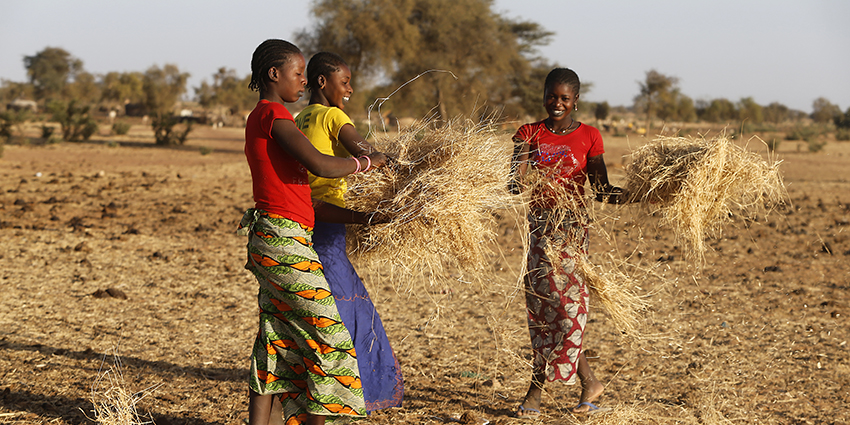The Covid-19 crisis and gender inequality

© Philippe LISSAC /Godong – Grameen Crédit Agricole Foundation
By Miren Bengoa, Administrator, member of the Finance, Risks and Impact Committee,
Grameen Crédit Agricole Foundation & Director of International Action, SOS Group
A director of the Grameen Crédit Agricole Foundation since 2020, Miren Bengoa has been the new Director of International Action for the SOS Group since January 2021. Since 2011, she has headed the CHANEL Foundation, which supports projects that improve the economic and social situation of women. Here's her take on the impact of the Covid-19 crisis on gender equality and the responses to it.
— What is the impact of Covid-19 on the status of women?
MB: Rising gender inequality is one of the immediate consequences of the Covid-19 crisis. During this pandemic, we have seen an increase in violence against women and girls and a decline in girls' learning as school dropout rates and child marriages increase. Tens of millions more women have fallen into extreme poverty, as they lose their jobs at a higher rate than men, and suffer from their difficulties in accessing new technologies and their lack of digital skills.
— In a few words, what is the panorama of gender inequalities in the world today?
MB: Current projections indicate that gender equality will not be achieved for another 130 years. In 2020, women represented on average (globally) 4.41% of business leaders, 16.91% of board members, 251% of parliamentarians, and 131% of peace negotiators. Only 22 countries currently have a female head of state or government (UN Women, 2020). We need better representation of women that reflects women and girls in their diversity and capabilities.
— How can female entrepreneurship be a response to the crisis?
MB: Women entrepreneurs have been on the front lines and heavily affected by the decline in economic activity. However, they also bring innovative solutions and must be supported as much as possible by funders and public authorities. Being heavily involved in responding to community needs, they were able to adapt their activities to the constraints caused by the pandemic. This wasn't easy: they sometimes gave up a lucrative activity to prioritize taking care of their families.
— Promoting women's empowerment is one of the Grameen Crédit Agricole Foundation's missions. What should be the priorities to strengthen this ambition?
MB: Since its creation, promoting women's empowerment has been at the heart of the Foundation's work: among the 7 million clients of the microfinance institutions it supports, 73% are women who have benefited from microcredit to create or develop income-generating activities. Maintaining funding, providing flexibility in deferring repayments, and frequently analyzing the needs of these institutions are and will continue to be key to enabling them to regain their capacity to act in favor of women's entrepreneurship.



Leave a Reply
Want to join the discussion?Feel free to contribute!